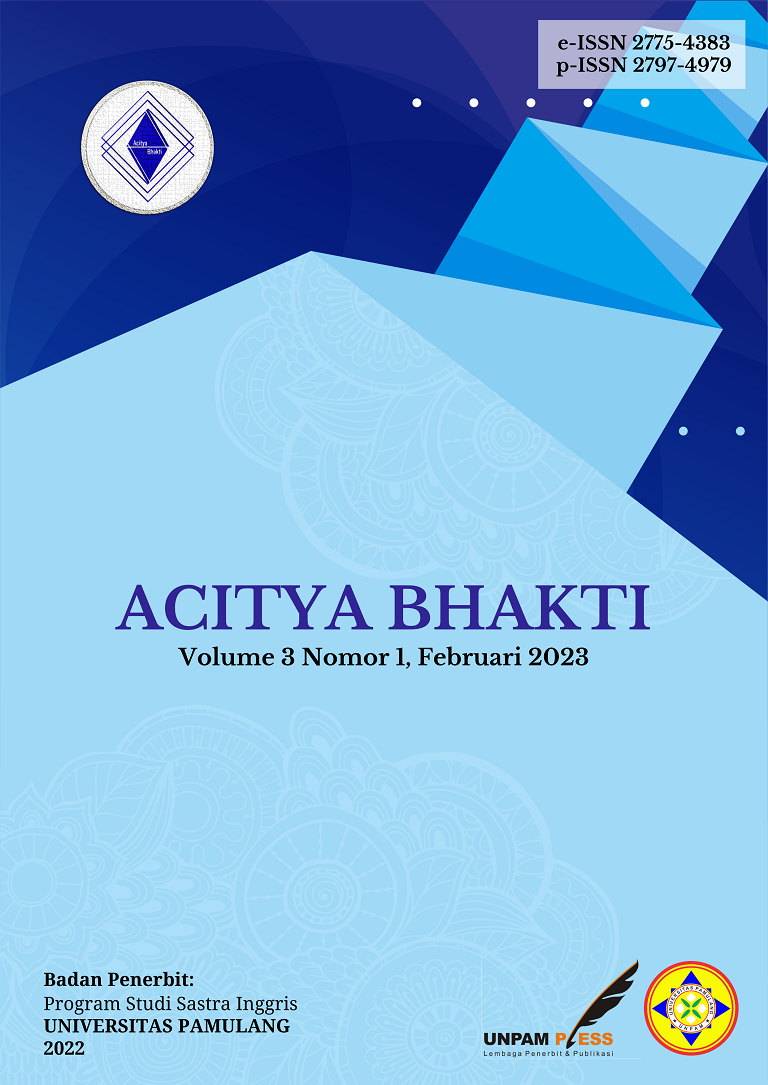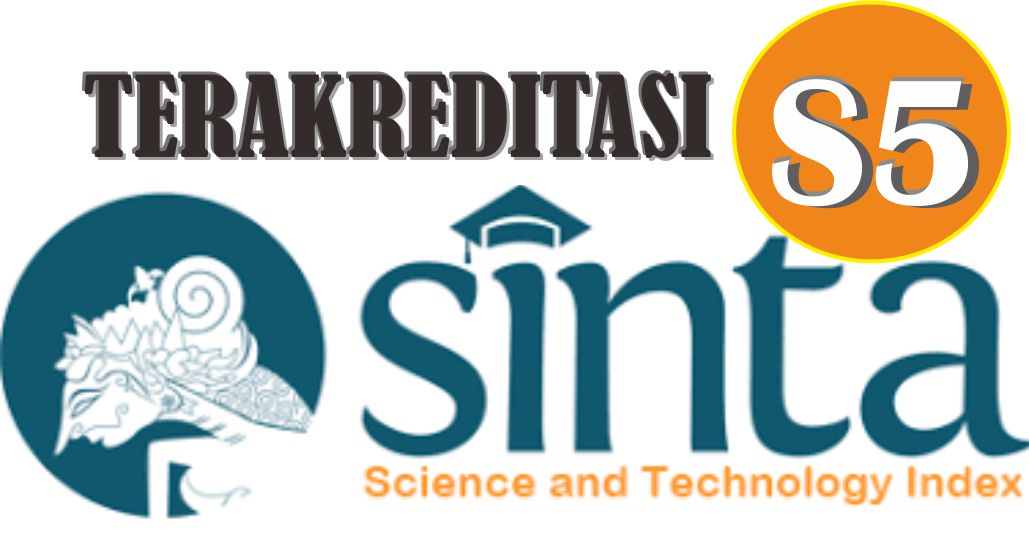Pelatihan Desain Pembelajaran Sprechfertigkeit Berbasis Proyek bagi Guru Bahasa Jerman Se-Malang Raya
DOI:
https://doi.org/10.32493/acb.v3i1.25006Keywords:
pembelajaran berbasis proyek, keterampilan berbicara, siswa, guruAbstract
Pelatihan desain pembelajaran berbasis proyek memaksimalkan pembelajaran yang berpusat kepada siswa. Guru memiliki peran sebagai tutor yang menyediakan sumber daya, dukungan, dan petunjuk kepada siswa. Pelatihan yang dilakukan ini bertujuan untuk mendeskripsikan desain pembelajaran dan penilaian guru bahasa Jerman se-Malang Raya yang terkait pembelajaran berbasis proyek. Hasil pengabdian ini menggunakan metode pelaksanaan yang terdiri dari paparan, diskusi, dan pendampingan secara langsung pada pertemuan rutin Ikatan Guru Bahasa Jerman Indonesia (IGBJI) Cabang Malang. Kegiatan yang dilakukan membawa beberapa manfaat yang diperoleh dari guru dari pelatihan penyusunan proyek keterampilan berbicara, yaitu (1) mempermudah menyusun instrumen tugas untuk siswa, (2) mendapatkan pengetahuan baru mengenai tugas penilaian berbicara berbasis proyek, (3) mengetahui perbedaan Ãœbungen und Aufgaben (4) menambah variasi dan ide baru tugas berbicara, dan (5) mendapatkan banyak alternatif penilaian dalam menilai proyek. Informasi yang diperoleh tersebut selanjutnya diterapkan guru dalam pembelajaran di dalam kelas di sekolah masing- masing.
References
Almulla, M.A. (2020). The Effectiveness of the project-based learning (PBL) Approach as a way to engage students in learning. SAGE Open, July-September 2020: 1–15. https://doi.org/10.1177/2158244020938702.
Andrade, H. & Du, Y. (2005). Student perspectives on rubric-referenced assessment. Practical Assessment, Research & Evaluation, 10(5), 1-11.
Anjarani, S. & Furqon, M. (2022). Hearing your feedback loud and clear: Students’ voices of audio feedback in virtual writing class. Metathesis: Journal of English Language Literature and Teaching, 6, 1-11. https://doi.org/10.31002/metathesis.v6i1.136.
Bolton, C.F. (2006). Rubrics and Adult Learners: Andragogy and assessment.
Assessment update, 18(3), 5-6.
Boonkit, K. (2010). Enhancing the development of speaking skills for non-native speakers of english. Procedia sosial and behavioral Sciences 2, 1305-1309. https://doi.org/10.1016/j.sbspro.2010.03.191.
Guo, P., Saab N., Post, L.S., & Admiraal, P.W. (2020). A review of project-based learning in higher education: Student outcomes and measure. International Journal of Educational Research, 102.
Heyward, M. (2021). Berbagi upaya inspiratif pemulihan pembelajaran di masa pandemi melalui temu inovasi ke-12. Online, https://www.kemdikbud.go.id/main/blog/2021/10/berbagi-upaya-inspiratif- pemulihan-pembelajaran-di-masa-pandemi-melalui-temu-inovasi-ke12, pada tanggal 12 Februari 2022.
Howard, J. (2002). Technology-enhanced project-based learning in teacher education: Addressing the goals of transfer. Journal of Technology and Teacher Education, 10(3), 343–364.
Jones, B. F., Rasmussen, C. M., & Moffitt, M. C. (1997). Real-Life problem solving: A collaborative approach to interdisciplinary learning. Washington DC: American Psychological Association. https://doi.org/10.1037/10266-000.
Kuimova, M. (2015) Advantages of using webquests in EFL classes in a technical university. World Journal on Educational Technology Current Issues, 7 (3): 167. https://doi.org/10.18844/wjet.v7i3.160.
Male, S. A., & Guzzomi, A. L. (2012). Facilitutor – More than a trivial merging of a facilitator and a tutor. Paper presented at 2012 Australasian Association for Engineering Education (AAEE) Annual Conference, Melbourne, Victoria,. Online, http://www.aaee.com.au/ conferences/2012/documents/abstracts/aaee2012- submission-197.pdf
Ministry of Education. (2012). Project work. Ministry of Education (Singapore)., Online, http://www.moe.gov.sg/education/programmes/project-work/
Ngeow, K., & Kong, Y. (2001). Learning to learn: Preparing teachers and students for problem- based learning. ERIC Digests (ERIC Identifier ED 457524).
Panadero, E. & Romero, M. (2014). To rubric or not to rubric? The effects of self- assessment on self-regulation, performance and self-efficacy. Assessment in education: Principles, policy & practice, 21(2), 133-148. https://doi.org/ 10.1080/0969594X.2013.877872.
Tan, J.CI. & Chapman, A. (2016). Project-based learning for academically-able students.
Netherlands: Sense Publishers.
Thomas, J. W. (2000). A review of research on project-based learning. Retrieved Februari, 2022, from http://www.autodesk.com/foundation
Veselov, G.E., Fedotova, A.Y., & Pljonkin. (2019). A project-based learning as an effective method in education.
Wong, A. F. L., Quek, C. L., Divaharan, S., Liu, W. C., Peer, J., & Williams, M. D. (2006).
Singapore students’ and teachers’ perceptions of computer supported project work classroom learning environments. Journal of Research on Technology in Education, 38(4), 449–479.
Zheng-dong, Z. (2006). Innovation and development of foreign language teaching in China. Higher Education Press and Springer-Verlag. https://doi.org/10.1007/s 11516-006-0031-2.



